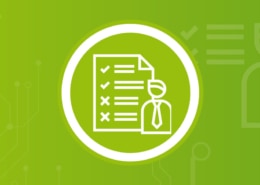Just Published: IREB CPRE – Foundation Level 3.0
We announced it before summer, and now it’s here – the IREB® has finally published the long-awaited CPRE Foundation Level 3.0. The new standard, released on October 1, 2020, promises a number of new features, especially with respect to the methods and techniques for which the IREB® provides training (keyword: agile methods).
The reworked standard is based on a survey carried out in the summer of 2017, which showed that although the CPRE FL 2.2 syllabus does still cover market needs for the most part, “some techniques are no longer used in practice, while the syllabus lacks others relevant to professionals seeking more iterative, more agile development. That feedback corresponded to the IREB’s perceived changes in the field of requirements engineering (RE).”
New Features in Syllabus
The survey resulted in a new syllabus for basic certification in the area of requirements engineering/requirements analysis, which now offers 7 educational units (EUs), instead of 9 as previously:
- EU 1 establishes the RE framework and provides a brief overview on the what, why, where and how when it comes to requirements engineering. Although that EU corresponds to the previous EU 1, it has been completely reworked.
- EU 2 is a new educational unit which introduces the nine basic principles of RE. The content of the previous EU 2 is covered to a certain extent in principle 4 of the new EU 2.
- EU 3 is based on reworked content from four EUs of the previous syllabus (EU 2, EU 4, EU 5, and EU 6) and includes everything on the documentation process and documentation results (work products).
- EU 4 brings together various sources for eliciting requirements, elicitation techniques, techniques for conflict resolution and for validation, which were previously distributed over the previous units EU 3 and EU 7.
- EU 5 is a new educational unit which is required to shape and structure the RE work which needs to be carried out in a given context and on the basis of influencing factors and process aspects.
- EU 6 provides the basic toolset for managing the RE process, and is a minor revision of the previous EU 8.
- EU 7 presents a classification of RE tools and is a minor revision of the previous EU 9.
Be Ready for CPRE FL 3.0
The IREB has provided a six-month transitional period for exams during which certification based on either the old and new syllabus will be granted. FL 3.0 will first be offered in English and German, with other languages to be added on a continual basis over the course of 2021. Along with 3.0, the IREB will also be publishing a handbook for the FL and updating the related syllabus and glossary. As an accredited training provider, we’re optimally prepared for the change, and as soon as the 3.0 standard is released, we’ll immediately adapt the course appropriately as well as the preparation we offer for certification.














